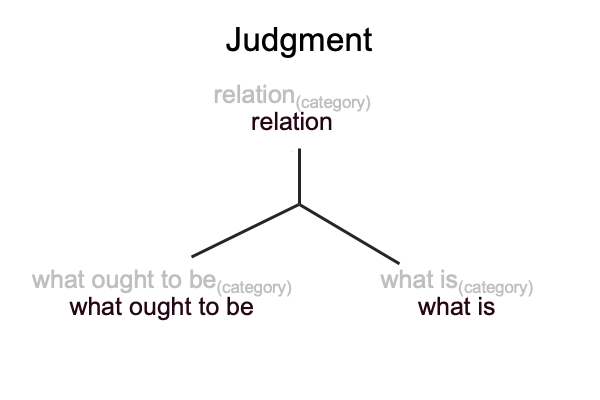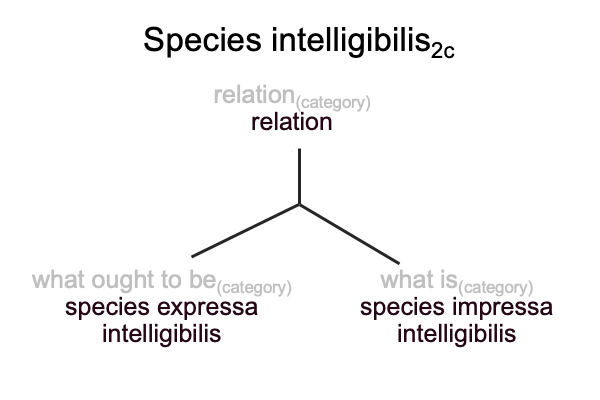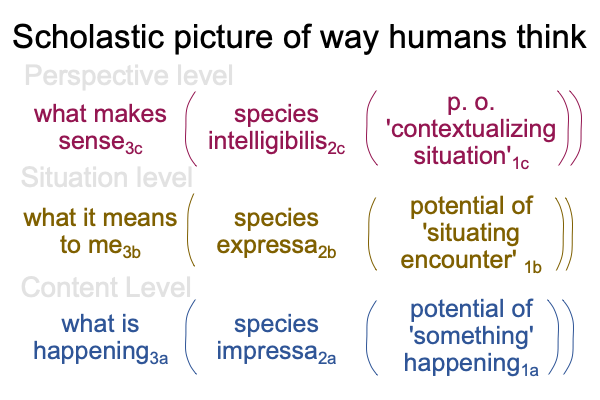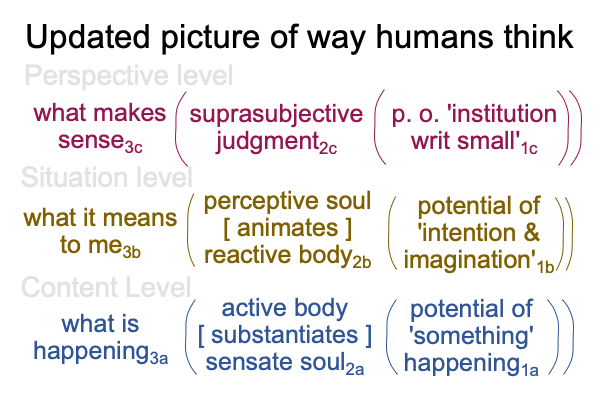0535 Natural philosophy is not the same as natural history.
Modern science offers objective natural history. “Objective” means “independent of what anyone in particular thinks about it”.
Does that imply that “objective” must be true?
Premodern philosophers and scholastics offer a natural philosophy that starts with the recognition of (1) material things as hylomorphes where matter [substantiates] form and (2) immaterial things as hylomorphes where being [substantiates] form.
Clearly, immaterial things do not exist independently of what anyone in particular thinks about them, because they are what people are thinking. Immaterial things structure human thought.
0536 Plus, immaterial things cannot be directly observed or measured with scientific instrumentation.
So, how is a scientist supposed to build a model, based on observations and measurements?
0537 Does Tomasello wrestle with angels… or maybe… demons?
Thank God that angels and devils are not material things. Science can safely ignore them. Why? The positivist intellect can only build models based on observations and measurements of material things.
Indeed, how can “angels” and “devils” be material things?
They are merely spoken words, labeling what (superstitious) humans project from their own imaginations. Their imaginations are the potentials underlying their perceptive souls [animating] their reactive bodies. Their imaginations project internal actualities onto the external world. Such projections reflect their own internal successes or failures at moral self-governance.
But, if this is so, then the above paragraph constitutes a scientific model that accounts for observations and measurements of phenomena associated with the terms, “angels” and “devils”.
Is that not curious?
0538 Here, I return to diagrams developed in Looking at Tomasello’s Book (2014) “A Natural History of Human Thinking”, and similar examinations (see point 0389).
We live in a world of judgment. A judgment is a triadic relation with three elements: relation, what is and what ought to be.
0539 Here is a judgment as a purely relational being. One could say that it is “objective”, because the relation exists despite what anyone thinks of it.

0540 Okay, as one watches the empty slots filled in, does that change its objectivity?
According to the Latin Age scholastics, if two of the empty slots are filled in by the universal aspects of an impression (a species impressa intelligibilis) and the intelligible aspects of a perception (a species expressa intelligibilis), then the resulting judgment may be labeled as a kind of intelligence (a species intelligibilis).
0541 Here is a picture.

Is this judgment2c still “objective”?
I suppose that it2c exists independently of what anyone thinks about it.
0542 At the same time, I can say that an impression2a (a species impressa2a) is subjective and a perception2b (a species expressa2b) is both objective (since it objectifies an impression2a) and intersubjective (since members of a group share intentionality1b and imagination1b).
So, a species intelligibilis2c, having the “objective” relational structure of judgment, may also be labeled, “suprasubjective”, because it2c puts the intersubjective perception2b and the subjective impression2a into perspective.
0543 Here is a picture of the scholastic interscope of the way humans think.

0544 Now, I may perform some substitutions.
For the content-level actuality2a, species impressa2a or impression2a, I substitute the hylomorphe, active body [substantiates] sensate soul2a.
For the situation-level possibility1b, the potential of ‘situating content’1b, I substitute the potential of shared intention and imagination1b.
For the situation-level actuality2b, species expressa2b or perception2b, I substitute the hylomorphe, perceptive soul [animates] reactive body2b.
For the perspective-level possibility1c, the potential of ‘contextualizing the situation’1c, I substitute the potential of a person as an institution writ small1c.
For the perspective-level actuality2c of species intelligibilis2c, I substitute the term, “suprasubjective judgment2c“.
0545 After all these substitutions are made, here is a picture of an updated scholastic interscope of the way humans think.

